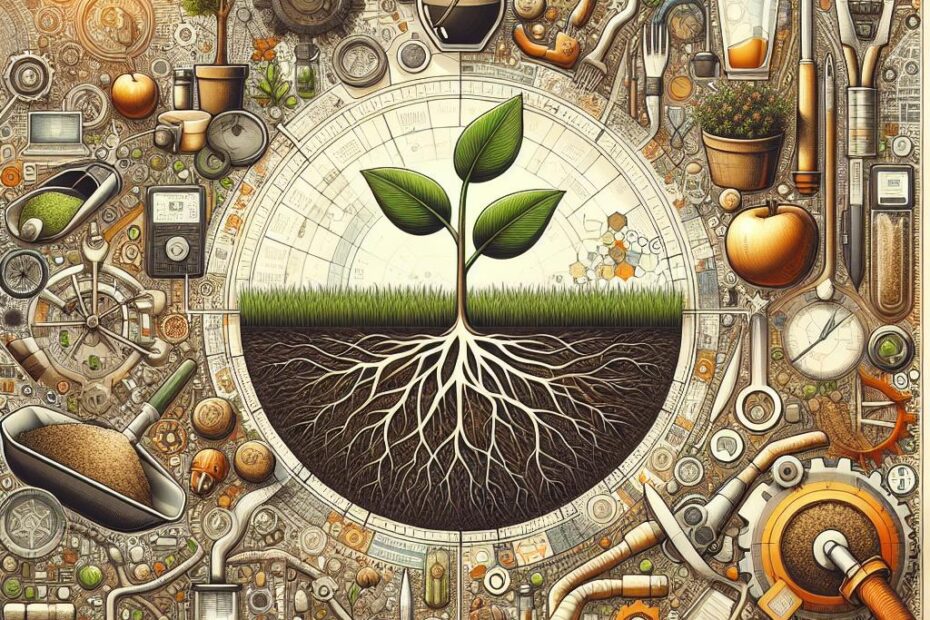Title: Why Topsoil is Crucial for Agriculture: The Key to Sustainable Farming
Introduction:
Topsoil is the uppermost layer of soil, rich in nutrients and organic matter. It is a key component of successful agriculture, supporting the growth of crops and ensuring sustainable farming practices. In this article, we will explore why topsoil is crucial for agriculture and how farmers can protect and enhance this vital resource for future generations.
The Importance of Topsoil in Agriculture:
-
Nutrient-Rich Soil: Topsoil is rich in essential nutrients such as nitrogen, phosphorus, and potassium, which are vital for plant growth and development. Without these nutrients, crops would struggle to thrive and produce high yields.
-
Water Retention: Topsoil has excellent water retention properties, holding moisture for plants to access during dry periods. This helps to reduce water stress on crops and ensures consistent growth and yield.
-
Root Development: Healthy topsoil contains a diverse ecosystem of microorganisms and earthworms that create a fertile environment for root development. Strong roots anchor plants in place and provide access to water and nutrients.
-
Soil Structure: Topsoil plays a crucial role in maintaining soil structure, preventing erosion, and promoting aeration. Good soil structure allows for optimal root penetration and improves overall soil health.
Benefits of Topsoil for Sustainable Agriculture:
-
Increased Crop Yields: Healthy topsoil leads to increased crop yields and improved quality of produce. Nutrient-rich soil supports vigorous plant growth, leading to higher productivity for farmers.
-
Environmental Protection: Topsoil helps to buffer against the impacts of climate change, such as floods and droughts. By preserving topsoil, farmers can protect their land from erosion and maintain a healthy ecosystem.
-
Cost Savings: By investing in topsoil conservation practices, farmers can reduce the need for chemical fertilizers and pesticides. This not only saves money but also promotes environmentally friendly farming methods.
Practical Tips for Topsoil Conservation:
-
Crop Rotation: Rotate crops to prevent nutrient depletion and maintain soil health.
-
Cover Crops: Plant cover crops to protect topsoil from erosion and add organic matter.
-
No-Till Farming: Adopt no-till farming practices to reduce soil disturbance and preserve topsoil structure.
-
Compost: Add compost to enrich topsoil with organic matter and beneficial microorganisms.
Case Study: The Benefits of Topsoil Conservation in Sustainable Farming
In a recent study conducted by the University of Agriculture, researchers found that implementing topsoil conservation practices led to a 20% increase in crop yields and a 30% reduction in fertilizer use. Farmers who participated in the study reported improved soil health and increased profitability.
Conclusion:
Topsoil is a precious resource that is essential for successful agriculture and sustainable farming practices. By understanding the importance of topsoil and implementing conservation methods, farmers can protect this vital asset for future generations. Investing in topsoil preservation not only benefits the environment but also leads to increased crop yields, cost savings, and improved soil health.
In conclusion, topsoil is the foundation of agriculture, supporting plant growth, water retention, and soil structure. By prioritizing topsoil conservation, farmers can ensure the long-term viability of their land and contribute to a more sustainable food system.
By following these practical tips and incorporating topsoil conservation into their farming practices, farmers can reap the benefits of healthy soil and sustainable agriculture. Topsoil is not just dirt – it is the key to a thriving and resilient farming ecosystem.
